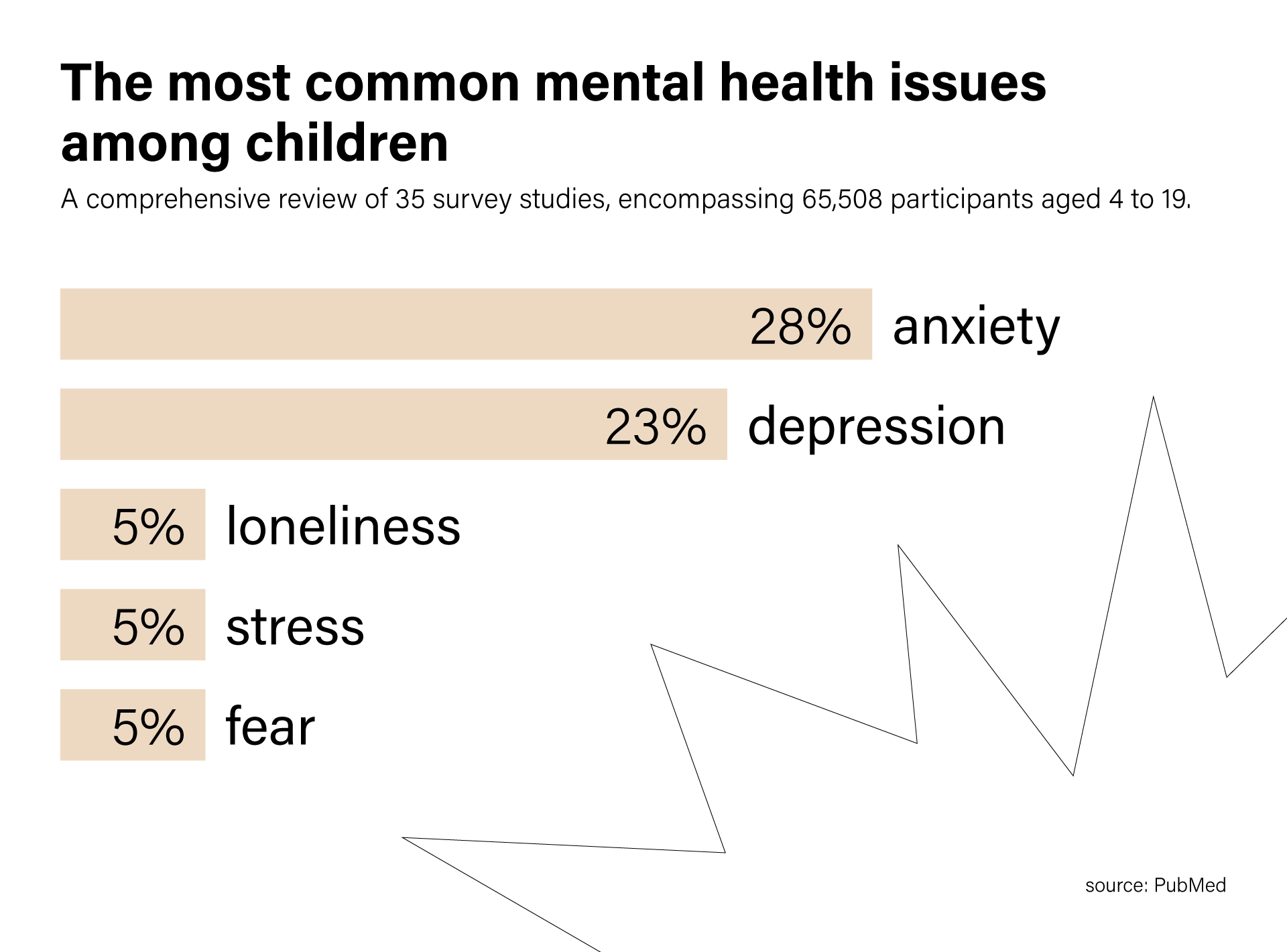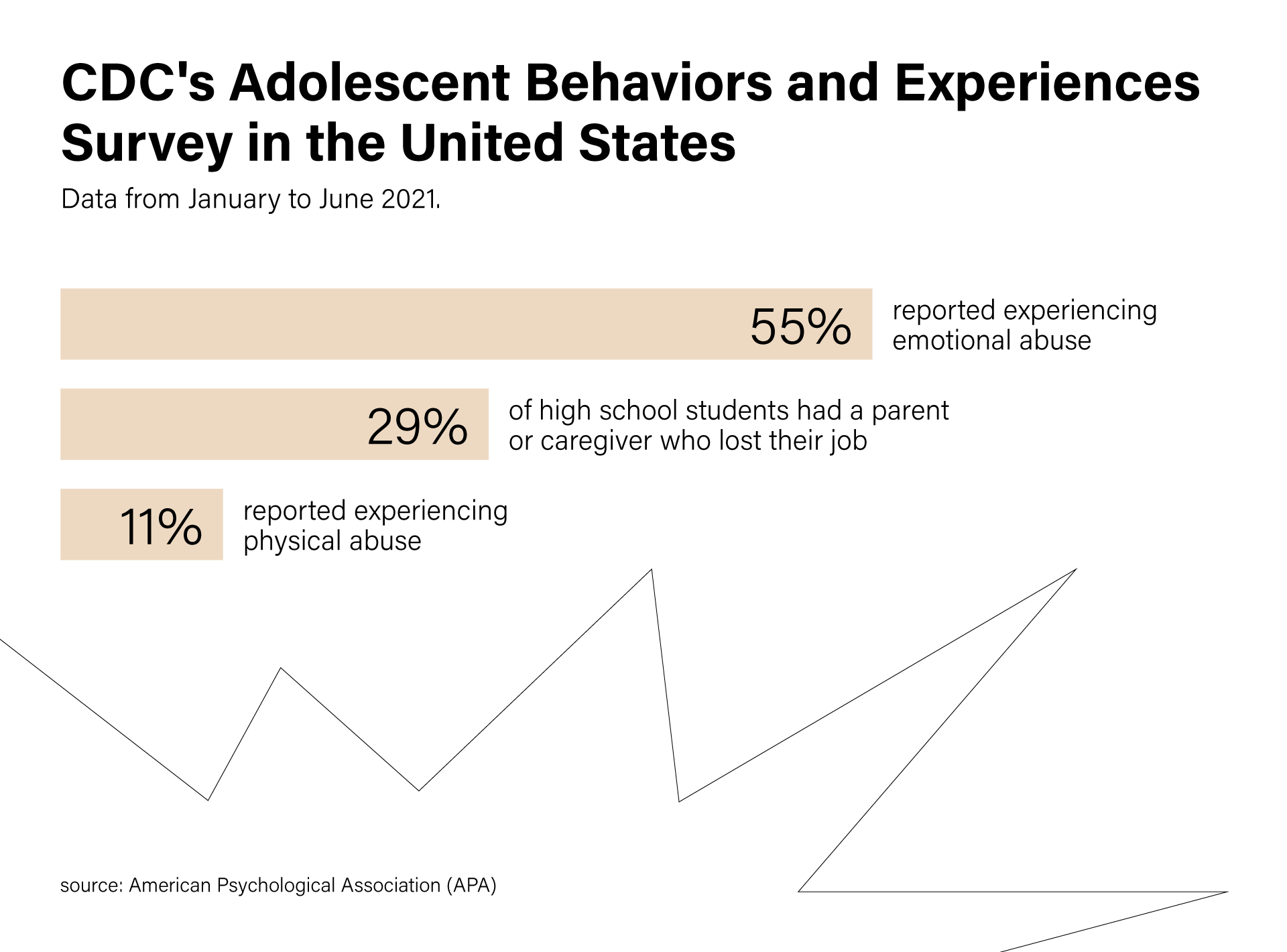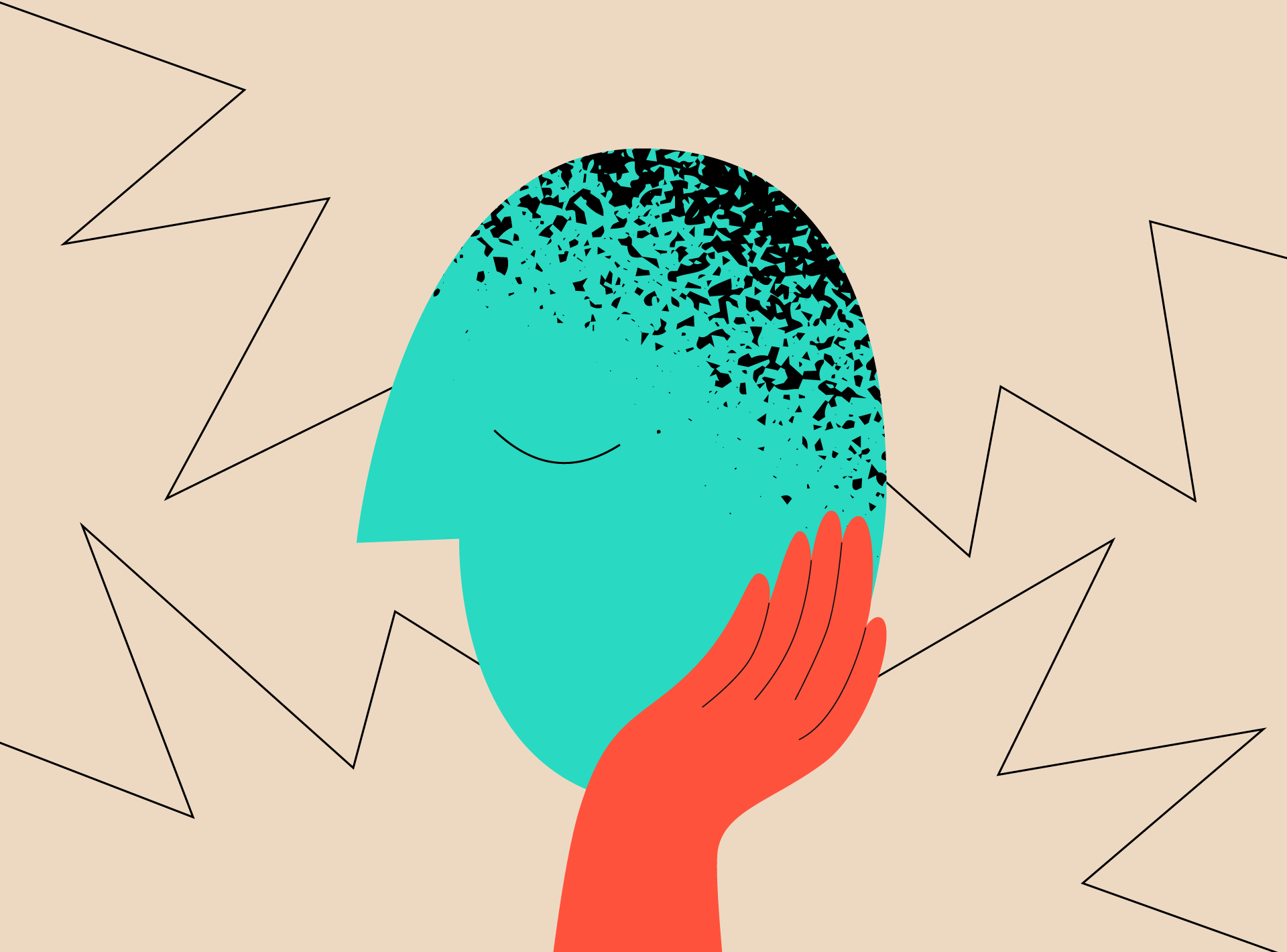The world has witnessed unprecedented challenges in recent times, from the ongoing COVID-19 pandemic to conflicts in various regions, including the recent invasion of Ukraine. These crises have cast a long shadow over our lives, impacting mental health across generations. We shall explore the hidden battle for mental well-being on two fronts: the toll on children’s mental health during the pandemic and the profound effects of global conflicts.
Prevalent Mental Health Issues
A comprehensive review of 35 survey studies, encompassing 65,508 participants aged 4 to 19, uncovered the most common mental health issues among children. Anxiety (28%), depression (23%), loneliness (5%), stress (5%), fear (5%), and other symptoms were frequently reported. These findings emphasize the pressing need for early intervention and support.

Risk Factors Amplifying the Crisis
Several risk factors have contributed to the deteriorating mental health of adolescents during the pandemic. Female gender and higher grade levels are linked to higher risks of depression and anxiety. Young adolescents who prefer outdoor social activities may be at heightened risk for anxiety or depressive symptoms.
Moreover, emotional reactivity and experiential avoidance among adolescents increase the risk of developing psychosocial disorders. Additionally, negative coping strategies, including behavioral avoidance, denial, and substance use, exacerbate depression, anxiety, and stress symptoms among high school students.
Youth Facing Emotional Issues
A recent report from the American Psychological Association (APA) has raised a red flag, highlighting the crisis in children’s mental health. The statistics are alarming, as revealed by the CDC’s Adolescent Behaviors and Experiences Survey in the United States from January to June 2021. During this period, 29% of high school students had a parent or caregiver who lost their job. Even more distressing, 55% reported experiencing emotional abuse, and 11% physical abuse.

The Role of Schools
Schools have always played a vital role in children’s development, and this pandemic has highlighted their significance even more. However, a 2022 Pew Research Center survey revealed a concerning gap – only about half of U.S. public schools offer mental health assessments, and even fewer provide treatment services.
To address this gap, psychologists are working to equip schools with the tools and resources needed to support students’ well-being on-site. It’s a critical step in ensuring that children have access to the help they require.
The Wider Implications
Beyond the school environment, the pandemic’s impact on mental health is widespread. Charts and data depict a significant increase in anxiety and depression across various age groups. Poverty has also been a contributing factor, compounding the challenges faced by vulnerable communities.
Global Mental Health Crises
Beyond the immediate effects on children’s mental health, the pandemic has catalyzed a broader mental health crisis affecting people of all ages. Uncertainty about the future looms large, with more than 61% of respondents believing that the pandemic has not brought anything good to society.
This crisis extends beyond conflict zones. The pandemic, ongoing global conflicts, and civil unrest compound the mental health burden. A report titled “A New Roadmap in Mental Health” underscores the gravity of the situation. It predicts that by 2030, mental health disorders will account for over half of the global economic burden from non-communicable diseases.
The Mental Health Index 2.0 highlights the dire situation, revealing that 22.1% of people experience mental disorders in conflict settings. These include mild forms of depression, anxiety, and PTSD (13%), more moderate forms (4%), and severe conditions like schizophrenia and bipolar affective disorder (5.1%).
Even after the conflict ends, approximately one in five people continues to grapple with these mental health challenges. With 27 ongoing conflicts worldwide and 68.6 million people displaced according to the United Nations, addressing the mental health needs of those affected by conflict and migration is an urgent priority.
The mental health impact of global conflicts is equally profound. The World Health Organization (WHO) notes that approximately 10% of individuals who experience traumatic events during armed conflicts will develop serious mental health problems. Depression, anxiety, and insomnia are common outcomes of exposure to conflict-related trauma.
Dr. Steve Sugden, a psychiatrist at Huntsman Mental Health Institute (HMHI), emphasizes that three populations are particularly vulnerable to the negative mental health consequences of war: civilians within the targeted homeland, soldiers on both sides and media consumers. The invasion in Ukraine has been dubbed the first “Social Media War,” highlighting the emotional impact of conflict-related content.
Spread Kindness, Boost Mental Health
In a world marked by multiple crises, nurturing the mental health of our youth is an investment in a brighter and more resilient future for all. Addressing mental health needs must be a top priority. The data is unequivocal: the burden of mental health disorders is increasing, and it’s imperative to act now. Providing support, resources, and awareness can make a significant difference in alleviating the silent suffering of millions.
To navigate these turbulent times, healthy social media boundaries are essential. Setting time limits, verifying content credibility, being mindful of emotions, and seeking uplifting and educational content are practical steps. Additionally, practicing kindness and supporting those affected by global conflicts can boost mental health and contribute to a positive impact on society.
In conclusion, as we confront the challenges of the COVID-19 pandemic and global conflicts, we must recognize the invisible battle for mental health. It’s a battle that spans generations and requires collective efforts to heal the wounds, both seen and unseen, that crises leave behind.
The Admind Way
At Admind, we understand that the mental well-being of our employees is an important and serious issue. We regularly organize internal workshops on maintaining a good work-life balance, invite external experts, and provide free access to various well-being platforms. We maintain a caring and empathetic culture that empowers our employees to address personal obligations, whether related to their children, family, or organizational needs while enjoying flexibility in their work schedules. We also offer Adminders private medical healthcare, which covers psychologists as well because we believe that only together can we win the battle for better mental health.



